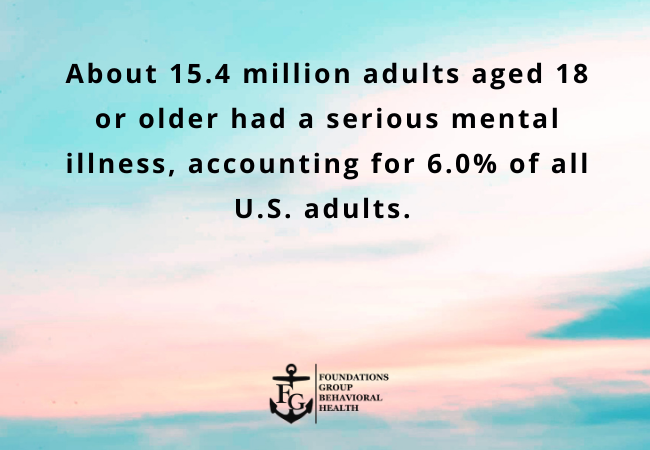When you begin taking psychiatric medication, it’s natural to hope for fast relief. Mental health symptoms like overwhelming anxiety, persistent depression, or trauma-related distress can feel unbearable. So, the first question many people ask at Foundations Group Behavioral Health is: “When will I start to feel better?”
The answer is: it varies.
Medications for mental health conditions aren’t instant fixes, but with the right treatment plan and support — whether you’re part of our Psychiatric Day Treatment Massachusetts, Half Day Treatment Program Massachusetts, or Outpatient Mental Health Therapy Massachusetts — you’ll have a clearer path toward healing.
This guide explores the timelines for psychiatric medications, what you can expect during your journey, and how we support you at every step.
Why Psychiatric Medications Take Time to Work
Unlike medications for physical pain, psychiatric medications target complex brain chemistry. Neurotransmitters such as serotonin, dopamine, and norepinephrine play crucial roles in mood regulation, anxiety management, and emotional balance.
When medications adjust these chemical levels, your brain and nervous system need time to respond. The goal is gradual, sustainable improvement, not a quick (and often fleeting) fix.
At Foundations Group Behavioral Health, we emphasize this natural adjustment process in all our Mental Health Treatment Programs Massachusetts, helping patients understand that slow and steady progress is normal — and effective.
Medication Timelines: What to Realistically Expect
1. Antidepressants (SSRIs, SNRIs, Tricyclics)
- Timeline: 2–6 weeks
- Programs Used: Frequently prescribed in our Depressive Disorder Treatment Program Massachusetts and Anxiety Treatment Program Massachusetts.
- Details:
- Initial changes such as improved sleep or appetite may be noticed early.
- Emotional symptoms like hopelessness, irritability, or panic take longer to ease.
- Full therapeutic effects typically develop after consistent use over several weeks.
2. Anti-Anxiety Medications
- Timeline:
- Benzodiazepines: Fast-acting, relief in 30–60 minutes. Used cautiously for short-term crises.
- Non-addictive anti-anxiety medications (e.g., SSRIs/SNRIs): 2–6 weeks for full effect.
- Programs Used: Integral in our Anxiety Treatment Program Massachusetts and Psychiatric Day Treatment Massachusetts.
3. Mood Stabilizers
- Timeline: 1–3 weeks, with continued improvement over months.
- Programs Used: Part of treatment in Trauma Disorder Treatment Program Massachusetts and for co-occurring disorders.
- Notes:
- Medications like lithium require regular blood tests.
- Effects include stabilized mood swings and reduced irritability.
4. Antipsychotics
- Timeline: Days to weeks depending on the medication.
- Programs Used: For severe mood instability and complex trauma cases in Behavioral Health Treatment Center Massachusetts.
- Effects: Calming effects may begin within days, but full symptom management takes weeks.
Factors Influencing Medication Effectiveness
Several factors impact how quickly medications begin to work:
- Biological Differences: Genetics, metabolism, and body chemistry vary widely.
- Severity of Symptoms: Chronic conditions or high symptom severity may require longer treatment times.
- Consistency with Medication: Taking medication at the same time each day boosts effectiveness.
- Concurrent Therapies: Combining medication with Mental Health Therapy Massachusetts accelerates progress.
- Lifestyle Choices: Sleep, diet, exercise, and stress management significantly influence how your body responds.
Our integrated care approach at Foundations Group Behavioral Health ensures that every factor is considered, monitored, and adjusted for optimal results.
What You May Experience During the First Weeks
Your journey with psychiatric medication will likely follow a gradual progression.
- Week 1–2:
- Physical changes like improved sleep and appetite.
- Side effects (if any) may appear but often decrease over time.
- Week 3–4:
- Subtle emotional improvements such as less irritability or fewer mood swings.
- Some anxiety relief begins to appear.
- Week 5–6:
- Full therapeutic effects start becoming noticeable.
- Reduced anxiety, stabilized mood, improved concentration, and clearer thinking.
During this period, your care team at Foundations Group Behavioral Health will stay closely connected, especially if you’re in our Psychiatric Day Treatment Massachusetts or Outpatient Mental Health Therapy Massachusetts programs.

The Essential Role of Therapy and Supportive Care
Psychiatric medications are most effective when combined with psychotherapy and holistic care. At Foundations Group Behavioral Health, we integrate medication management with evidence-based therapies, including:
- Cognitive Behavioral Therapy (CBT)
- Trauma-Informed Therapy (especially within our Trauma Disorder Treatment Program Massachusetts)
- Group Therapy sessions for shared healing experiences
- Mindfulness and coping strategies taught in our Half Day Treatment Program Massachusetts
This comprehensive approach promotes faster symptom relief and empowers long-term recovery.
What If Medication Doesn’t Seem to Work?
It’s essential to remember that finding the right medication — and the correct dosage — is a process. If you don’t feel better right away:
- Talk to your provider. Open communication is vital. Side effects or insufficient symptom relief may require adjustments.
- Stay the course. Many medications take several weeks to work fully.
- Consider adjunctive therapies. Options like therapy, lifestyle changes, or alternative medications might help.
- Use your support network. Friends, family, and peer groups — as well as our compassionate team at Behavioral Health Treatment Center Massachusetts — are here for you.
Our approach at Foundations Group Behavioral Health ensures ongoing monitoring and adjustment, so you’re never navigating this journey alone.
Why Choose Us
At Foundations Group Behavioral Health, we understand that starting psychiatric medication can feel overwhelming. That’s why we offer more than prescriptions — we provide compassionate, whole-person care that supports you from your first appointment to your full recovery.
Here’s why patients across Massachusetts trust us with their mental health care:
- Personalized Treatment Plans
Every individual is unique. We customize treatment to your specific needs, whether you’re dealing with anxiety, depression, trauma, or a combination of challenges. - Comprehensive Programs for Every Stage of Recovery
We offer a full continuum of care, including Psychiatric Day Treatment Massachusetts, Half Day Treatment Program Massachusetts, and Outpatient Mental Health Therapy Massachusetts. Whether you need daily intensive support or flexible outpatient therapy, we have the right fit for you. - Integrated Medication and Therapy Services
Medication works best when combined with therapy. Our programs blend expert medication management with evidence-based therapies to maximize healing. - Experienced, Compassionate Team
Our licensed providers are experts in Anxiety Treatment Program Massachusetts, Depressive Disorder Treatment Program Massachusetts, and Trauma Disorder Treatment Program Massachusetts, among others. We work closely with you every step of the way. - Supportive Environment Close to Home
Located in Massachusetts, our Behavioral Health Treatment Center Massachusetts offers a welcoming, stigma-free space to heal. - Ongoing Monitoring and Adjustments
We don’t just prescribe medication — we monitor your progress closely, adjusting your care plan as needed to ensure you achieve meaningful, lasting recovery.
Conclusion
Understanding the timeline for psychiatric medications helps set realistic expectations and provides reassurance during your healing journey. Progress may be gradual, but every small improvement is a step closer to recovery.
At Foundations Group Behavioral Health, we are committed to helping you find the right medication, the right therapy, and the right support system for your unique path to wellness. Through our Psychiatric Day Treatment Massachusetts, Half Day Treatment Program Massachusetts, and Outpatient Mental Health Therapy Massachusetts, we’ll work alongside you — from your first prescription to your full recovery. Ready to take the next step? Call us today at 888.685.9730. Let’s work together toward your brighter, healthier future.
FAQ on Psychiatric Medications
How long does it take for psychiatric medications to start working?
It depends on the type of medication and individual factors, but most psychiatric medications begin to show benefits within 2–6 weeks. Faster-acting medications like benzodiazepines may work within hours, while antidepressants and mood stabilizers often take a few weeks.
Can I speed up the effects of my medication?
While you can’t accelerate the chemical process, staying consistent with your medication, attending therapy, and maintaining healthy lifestyle habits like sleep, exercise, and nutrition can support overall progress. Foundations Group Behavioral Health provides integrated care through Psychiatric Day Treatment Massachusetts and other programs to help you stay on track.
What should I do if my medication doesn’t seem to work?
Communicate with your provider immediately. Adjustments in dosage, switching medications, or adding therapy from our Outpatient Mental Health Therapy Massachusetts program can help. Remember, finding the right medication is a process.
Will I need to stay on medication forever?
Not necessarily. Some people take medication short-term to stabilize symptoms, while others benefit from long-term use. Your care team at Foundations Group Behavioral Health will regularly review your treatment plan with you.
Are there side effects with psychiatric medications?
Some people experience mild side effects, especially in the early weeks. These often subside as your body adjusts. Our providers monitor your response closely in our Half Day Treatment Program Massachusetts and Psychiatric Day Treatment Massachusetts.
Does therapy help my medication work better?
Yes! Combining medication with evidence-based therapy (like CBT or trauma-informed care) boosts effectiveness. Our integrated Mental Health Treatment Programs Massachusetts provide both, ensuring comprehensive support.
How do I know if my medication is working?
You may notice gradual improvements like better sleep, stabilized mood, fewer panic attacks, or clearer thinking. Tracking your symptoms and discussing them with your provider helps us fine-tune your treatment.








